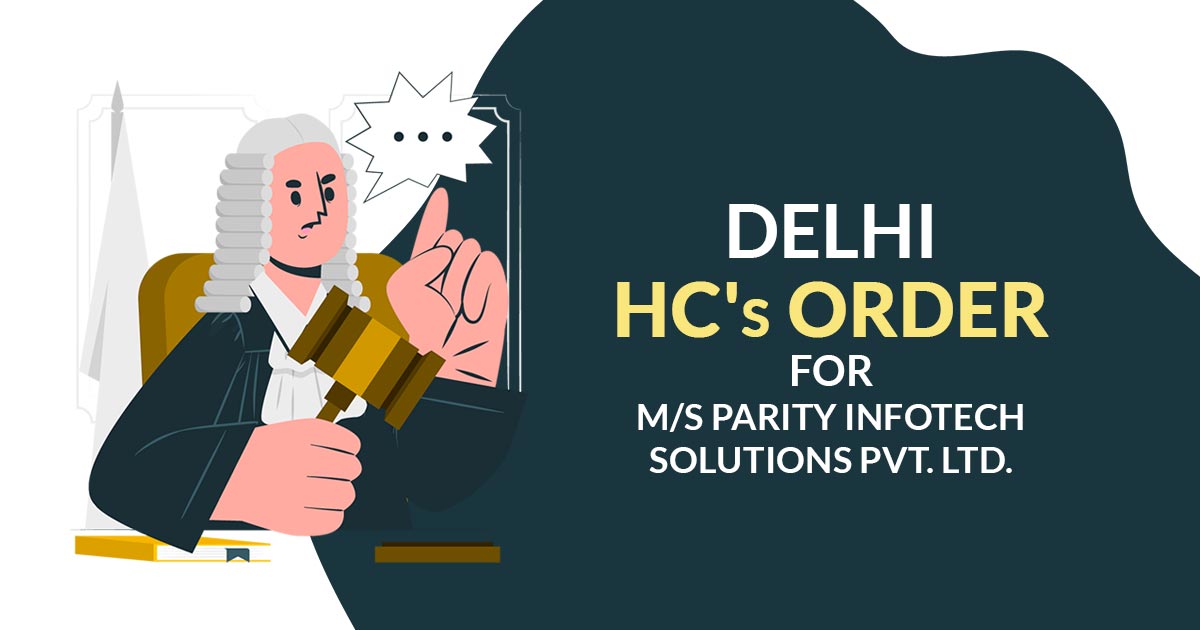
The Delhi High Court ruled that under Rule 86 A of the CGST 2017, the restriction of the input tax credit (ITC) cannot be more than one year.
The petitioner, M/s Parity Infotech Solutions Pvt. Ltd., complained about the instruction, which was dated March 8, 2012. Special Commissioner-V, Department of Trade and Taxes, issued the matter. Further, it was instructed to other officials of the DGST to scrutinize related cases of the Input Tax Credit where a taxpayer has been blocked for over one year to skip the provisions of the law. The law says they cannot block ITC for more than one year.
Under Rule 86A of the Central Goods & Services Tax Rules, 2017, the GST ITC present in the Electronic Credit Ledger of the petitioner was blocked on 26.11.2020. The same was not unblocked immediately by the respondents on the expiration of one year. The petitioner claimed that the order was made artificially because of the matter of challenging ITC. That would be presented to the petitioner on the same being unblocked. The petitioner made an argument and said the same was done following the challenged order, which is not as per the law.
The blocking of the Electronic Credit Ledger without any relevant reasons and keeping it blocked for more than one year were also challenged by the petitioner. The requester had even approached the respondents to find out the reasons and also to inquire about the procedure through which unblocking could be done. Yet, no proper action had been taken.
Moreover, the petitioner challenged the respondent’s notice of making demands just based on correspondence from the Central Tax Department.
Read Also: HC Permits Unused TDS Under GST ITC & Forward in Next Subsequent Months
The court said this was a radical step by the respondents to block the Electronic Credit Ledger. So the concerned officer needed to gather some material to make certain that the things under Rule 86A of the Rules are followed. It was learned that under Section 86A, any restriction will not be effective after the date has passed and such impositions are made.
A bench of Justice Vibhu Bakhru and Justice Amit Mahajan mentioned that under Section 74(1) of the CGST Act, a GST show-cause notice can be issued. This can only be issued in certain circumstances, such as when the tax has not been paid, has been underpaid, or has been incorrectly refunded, or when the ITC has been presented incorrectly due to fraud, wilful misstatement, or suppression of facts in order to evade tax.
The court also confirmed that, with the provisions of S. 74, the impugned SCN and impugned order were not in accordance. Because the respondents proceeded with challenged instructions and did not have enough material to form a point of view.
Important: New Circular of GST ITC Blocking & Unblocking Rule 86A by Govt
The Court put aside the challenged show cause notice and order while accepting the appeal. Additionally, the respondents are ordered to put back the ITC appropriated to the ECL of the petitioner immediately under the demand created by the impugned order.
| Case Title | M/s Parity Infotech Solutions Pvt. Ltd Vs Government of National Capital Territory of Delhi & Ors |
| Citation | W.P.(C) 7017/2022 & CM No. 21510/2022 |
| Date | 07.03.2023 |
| Appellant By | Mr Puneet Agarwal, Ms Purvi Sinha, Mr Ketan Jain, Mr Chetan Kumar Shukla |
| Respondent By | Mr AvishkarSinghvi, Mr Naved Ahmed, Mr Vivek Kumar |
| Delhi High Court | Read Order |









